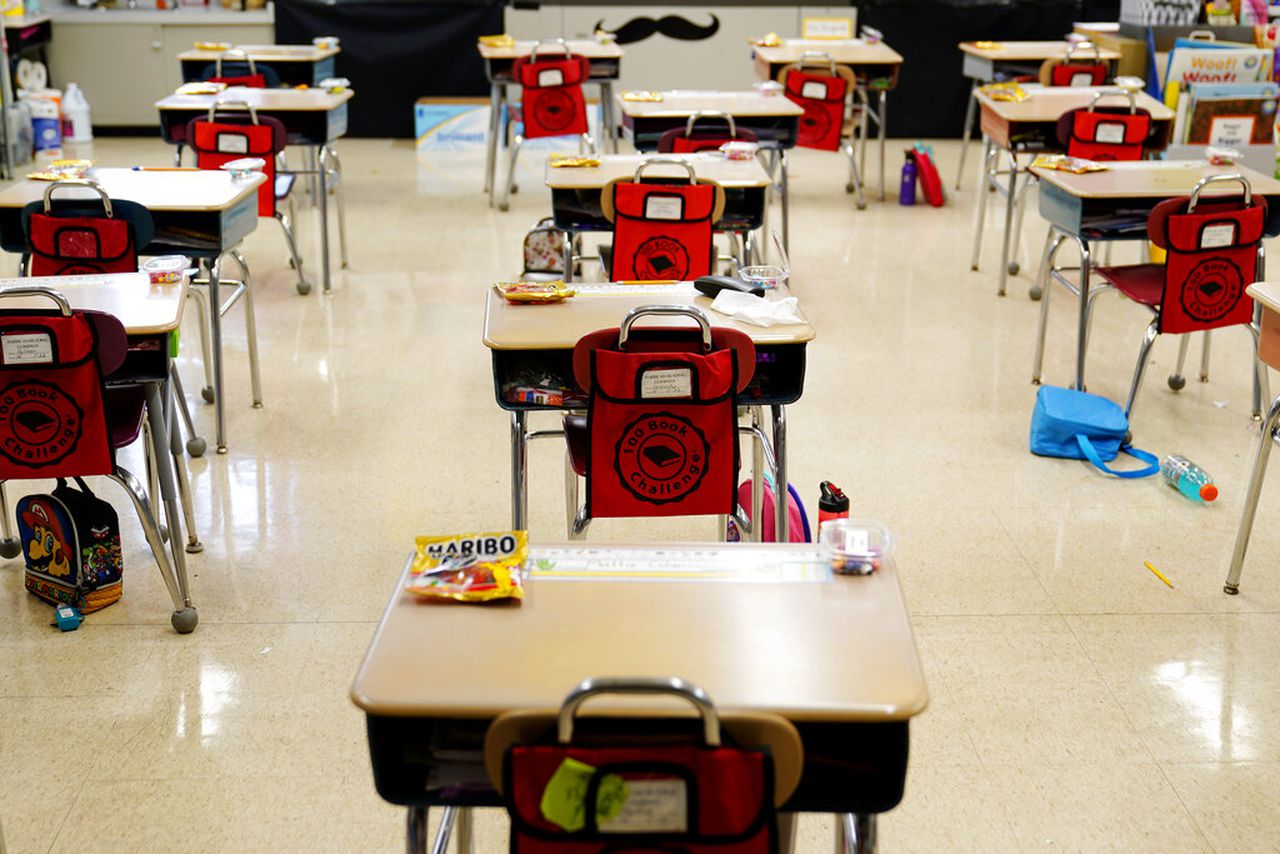Dana Hall McCain: Our kids deserve honest analysis of pandemic policy
This is an opinion column.
Scores on the 2022 National Assessment of Educational Progress (NAEP) revealed a record-setting plunge for America’s students, essentially wiping out two decades of educational progress. As Americans navigated the world of Covid-19 in 2020-2021, many public health officials and teachers’ unions pushed to keep classrooms closed for long periods. The cost of those closures has proven even higher than many expected.
Americans swam in a sea of numbers for two years: positive cases, hospitalizations, and deaths. But while we devoted ourselves only to managing those statistics, losses were mounting on the other side of the ledger: mental health needs exacerbated by isolation, developmental delays in children who needed to see human faces rather than masks, and massive setbacks in educational progress.
These NAEP scores represent the first broad, quantified measure of those impacts.
I’m hesitant to throw public officials and school administrators under the bus for things that went on in the initial months of the pandemic when information was scarce and anxiety high. Many reasonable and well-meaning people were doing their best to balance the competing interests of public health, economic survival, and education.
But we crossed a threshold somewhere in the first year. Pandemic policy analysis became so politicized that reason took a backseat to ideology. Those devoted to lockdowns seemed unwilling to consider the accumulating data showing children to be at minimal risk from the virus. At the same time, they gave little weight to the mental health, developmental, and learning losses that remote education was heaping on our kids. (Interestingly, Sweden did the exact opposite of this and is now reaping the rewards.)
Fortunately, Alabama was among the states that allowed individual school districts to reopen in the fall of 2020, following specific distancing and sanitation guidelines. Discussions about when and how to resume in-person instruction were contentious in some districts. But localizing decisions gave parents and community stakeholders a chance to be heard.
Alabama’s test scores remained steady while the bottom fell out in many other states nationwide. We moved up considerably compared to other states just by holding the line. Florida, whose Republican governor, Ron DeSantis, took considerable heat for reopening schools quickly, ranks among the best in the nation on the 2022 NAEP. Of course, in-person learning is one of many factors affecting these scores: California managed to hold on well despite staying remote longer than many other states. Still, it is a prominent factor in most scores that cratered.
While we don’t want to burn public health officials in effigy in light of these realizations, an honest public conversation is in order. Let’s assume that health administrators and teachers’ unions acted in good faith and honestly thought they were right in advocating for such lengthy school closures.
They were still wrong. Demonstrably wrong. And sadly, some students will be paying the price of this error for the rest of their lives. That requires accountability and that we learn from the mistakes that leaders made. We owe our kids that much.
Some will characterize this discussion about who was right and who was wrong as Monday-morning quarterbacking of a once-in-a-lifetime event. So be it. Because two things are true: many voices nationwide were shouting in opposition to long-term school shutdowns in real time and were ignored. And even if they hadn’t been, every good team watches game film–win or lose–to learn from what went right and what went wrong.
We can’t go back in time. But we can honestly analyze and learn from our handling of the pandemic. If we do, we may avoid repeating the same mistakes in the next public health crisis.
Dana Hall McCain writes about public policy, faith, and culture for AL.com. Follow her on Twitter @dhmccain for thoughts on these topics and more.
